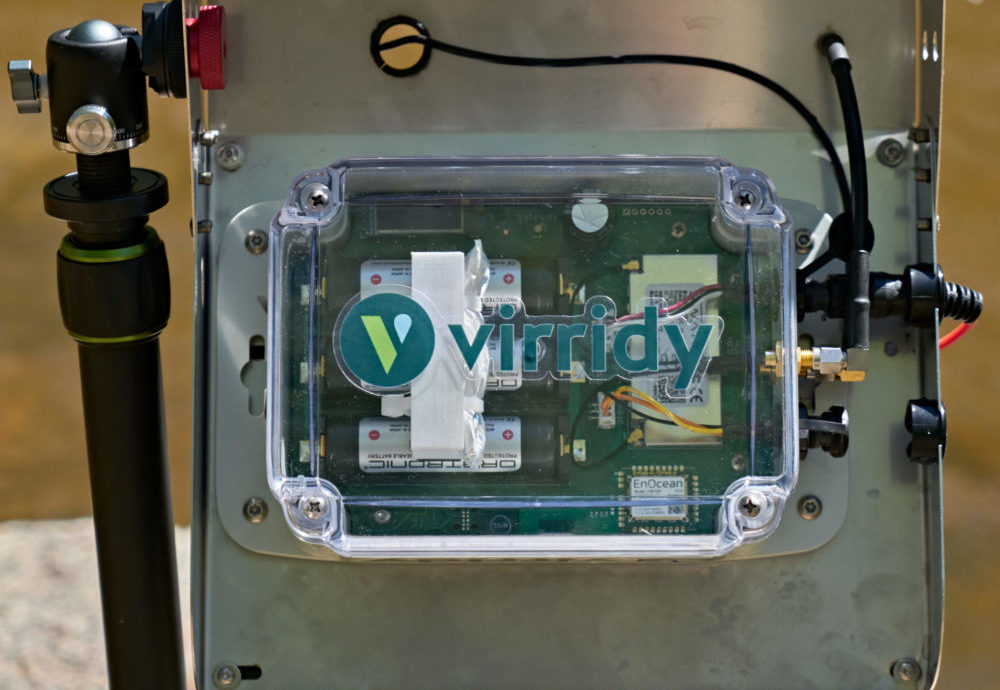Virridy is out to mitigate water insecurity using tech. The US startup provides Africa’s rural communities and Western US states with satellite-connected sensors for managing water, energy, and other agricultural resources.
It recently announced the close of its $5.5 million Series A funding round, the proceeds of which it’ll use to accelerate development and adoption of its sensors.
The round was led by Accord Capital, with participation from existing investors FHI 360, Cleo Capital, Reverent Rock, Save Earth, and VertueLab.
Why it matters:
One in 10 people lack access to clean water, and 2 billion currently live with chronic high water stress. Climate change is exacerbating that scarcity, with negative effects in store for food production.
The world is still heavily dependent on irrigation to grow crops. It is estimated that around 40% of global produce is sourced from irrigated agriculture, representing 20% of total cultivated land.
How it works:
Virridy, formerly known as Sweetsense, was founded in 2010 to offer monitoring solutions for the effective management of environmental resources in remote and off-grid areas, starting out with arid regions in Kenya and Ethiopia.
The Portland, Oregon-based company manufactures sensors which can be installed at water pumps and bore holes to collect data on water availability. Its machine learning platform analyzes this data to help relevant agencies make early interventions. This helps in maintenance and effective deployment of resources to minimize borehole downtime, ensuring communities — and their crops and livestock — have consistent access to water.
“Virridy’s first sensors were installed on household water filters in Kenya, then on handpumps in Rwanda, and now are at-scale monitoring large electrical groundwater pumps,” Virridy founder and CEO Evan Thomas tells AFN.
“Research we conducted in Rwanda showed how data and management systems can improve how quickly maintenance providers respond. Using electronic sensors to remotely monitor handpumps over cellular networks, we showed that there could be a 10-times reduction in water system downtime, from 200 days to 20 days.”
The company has also developed a device that uses ultra-violet light emitting diodes to detect fecal contamination in water. It offers other accessory sensors that can monitor air quality, soil carbon sequestration, electricity consumption, and other parameters to improve resource conservation, energy efficiency, and climate resilience.
By partnering with organizations such as the National Science Foundation, USAID, the World Bank, NASA, the Millennium Water Alliance, and Swarm Technologies, Virridy is able to make its sensors affordable for the communities it targets.
Virridy is also working with The Freshwater Trust and Wexus Technologies to help farmers in the drought-prone Western US monitor and better manage groundwater pumping and consumption while earning revenue through energy savings and automated demand response. This helps farmers keep operational costs down, increase revenue, and comply with expanding government regulation on sustainable groundwater use.
To date, Virridy has sold around 250 sensors in the US and 2,000 internationally. It claims these devices are now monitoring the water supply of over 4 million people.
While its primary business model lies in hardware sales, Virridy also offers sensor data interpretation services.
What they’re saying:
Evan Thomas, founder and CEO, Virridy
“Virridy is enabling environmental markets, including carbon credits, energy incentives, and water permitting through our sensors and analytics. Our team was the first to bring to market carbon financing for water treatment 15 years ago, and are now supporting these markets at scale for water access and conservation, soil carbon, and energy conservation.”





